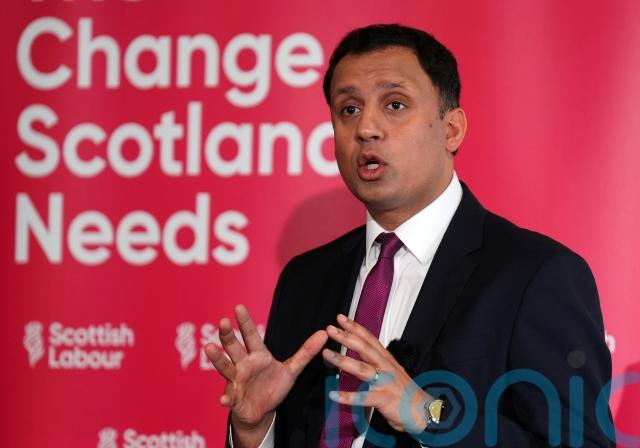
The SNP is on course to win the most seats in the 2026 Holyrood election but forming a government will be a “substantial hurdle”, polling suggests.
The Survation poll for the Holyrood Sources podcast and True North Advisors puts the SNP on 53 seats, ahead of second-placed Labour on 24.
Meanwhile, it put the Conservatives and Reform in joint third place on 15 seats each, the Liberal Democrats on 12, and the Scottish Greens on 10.
The 2021 election saw the SNP win 64 seats, Conservatives 31, Labour 22, Scottish Greens eight and the Liberal Democrats four.
For Holyrood Sources podcast host, and former Scottish Conservative director of communications, Andy Maciver, the poll confirmed a number of “emerging trends”.
He said: “The first is that Labour is now realising, as the Tories have experienced for so many years, that when your Westminster party sneezes, you catch a cold.
“The second is that, even without a leader in Scotland, Reform UK is attracting the votes of people, particularly on the unionist right, who clearly feel the mainstream has failed them.
“The third is that if Reform UK’s vote sticks, then, for the first time, we may be in a situation where finding two parties who can together command a Holyrood majority could be a substantial hurdle.”
Professor Sir John Curtice of Strathclyde University said the results indicate Labour leader Anas Sarwar’s popularity is not enough to offset voters’ “disappointment” with the performance of the UK Labour Government at Westminster.
🚨🆕HOLYROOD 2026 VOTING INTENTION
Seat extrapolation from Professor Sir John Curtice (assuming uniform movement):
🟡SNP 53🔵Con 15🟣Ref. 15🔴Lab 24🟠LD. 12🟢Grn. 10@CalumAM | @geoffaberdein | @akmaciver pic.twitter.com/m9mopkOhec
— Holyrood Sources (@HolyroodSources) January 15, 2025
“His once seemingly bright prospects of becoming Scotland’s next first minister have diminished markedly since July,” Sir John said.
“Nevertheless, the SNP are currently still heading for significant losses in next year’s Holyrood election, and could well find it difficult to form a stable administration.”
He added that while voters “have their doubts” about the SNP’s record in office since 2021 – particularly on health – they are “even more doubtful” about Labour’s performance at Westminster.
The poll also showed John Swinney is the most popular choice to be the next first minister, with 25% of respondents saying they feel the SNP leader will be the best in the role, ahead of Anas Sarwar on 16%.
Thirty-eight per cent said they do not know who would make the best first minister.
Sir John also pointed to the two leaders’ differing fortunes among people who voted for their respective parties in 2021.
The poll suggests fewer than two in five of those who voted Labour in 2021 “positively approve” of Mr Sarwar’s performance as party leader.
In contrast, it indicates two-thirds of those who voted SNP in 2021 approve of Mr Swinney’s performance – even though the party remains “well short” of the popularity it enjoyed in the last Holyrood election.

Dr Eilidh Whiteford, True North senior adviser and former SNP MP, said the results show Mr Swinney has “arrested the decline” in his party’s fortunes since taking over the reins last year.
However, she cautioned that the party will be “well advised to avoid complacency”.
She said: “The support of just 33% of the electorate is hardly a ringing endorsement and it would be a big mistake to think that having steadied the ship they can continue with business as usual.
“Their revival of fortunes has more to do with the absence of an inspiring alternative than with renewed enthusiasm for their performance in Government.
“Meanwhile, the saga of Operation Branchform drags on and may yet threaten to derail the SNP’s 2026 plans, with unpredictable consequences.”
Branchform is the name of the Police Scotland investigation into SNP finances.
Fieldwork for the Survation poll was carried out by online interviews between January 7 and 13, using a sample of 1,024 Scottish residents aged 16 and above.
Reacting to the poll, Scottish Secretary Ian Murray said it is “indicative of how difficult the circumstances are”.
Speaking to journalists at the Scottish Parliament on Wednesday morning, he said: “We’ve had to make some pretty difficult decisions that are unpopular.
“No government wants to make unpopular and difficult decisions but we were forced into that, both with the inheritance that we knew about and the inheritance we didn’t know about.
“We were honest with the public back in July that it would be tough but maybe the public don’t like honesty after all.”
Subscribe or register today to discover more from DonegalLive.ie
Buy the e-paper of the Donegal Democrat, Donegal People's Press, Donegal Post and Inish Times here for instant access to Donegal's premier news titles.
Keep up with the latest news from Donegal with our daily newsletter featuring the most important stories of the day delivered to your inbox every evening at 5pm.